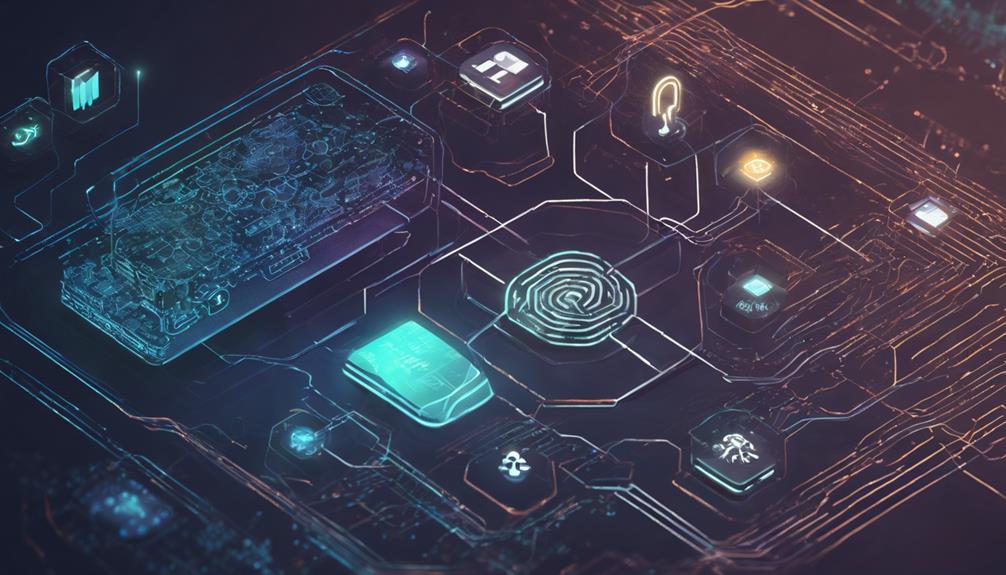While AI enhances cybersecurity measures, human expertise remains vital in defending against digital threats. The synergy between AI technology and human professionals strengthens security by combining AI's efficiency with human intuition and adaptability. AI can quickly detect and respond to evolving threats, but human oversight is essential for complex decision-making and overcoming AI's limitations. The future of cybersecurity lies in a hybrid approach that optimizes resource allocation and leverages the strengths of both AI and human experts. Discover more about the surprising relationship between AI and cybersecurity to guarantee effective protection against cyber threats.
Key Takeaways
- AI enhances cybersecurity but cannot replace human expertise.
- Human intuition and critical thinking remain vital in cyber defense.
- AI complements human professionals for optimal security outcomes.
- Synergy between AI and humans strengthens overall cybersecurity measures.
- A hybrid approach leveraging AI and human skills is the future of cybersecurity.
AI's Impact on Cybersecurity
AI's transformative influence on cybersecurity is evident in its ability to revolutionize threat detection and response strategies. Machine learning algorithms and AI tools play a vital role in enhancing cybersecurity measures by quickly identifying and mitigating evolving threats through advanced threat intelligence analysis.
Traditional cybersecurity methods are being complemented and even replaced by AI in cybersecurity, as automated vulnerability scanning powered by AI enables organizations to promptly patch security weaknesses.
Moreover, AI in cybersecurity is not just about defense; it is also about proactive cyber defense strategies. By integrating AI into privacy policy monitoring and enforcement, organizations can guarantee compliance and protect sensitive data effectively.
AI's impact on cybersecurity extends beyond just technology; it involves a shift in mindset towards a more dynamic and adaptive approach to cyber defense. Embracing AI's capabilities in threat intelligence and cyber defense can greatly strengthen organizations' resilience against cyber threats in today's digital landscape.
Human Role in Cyber Defense
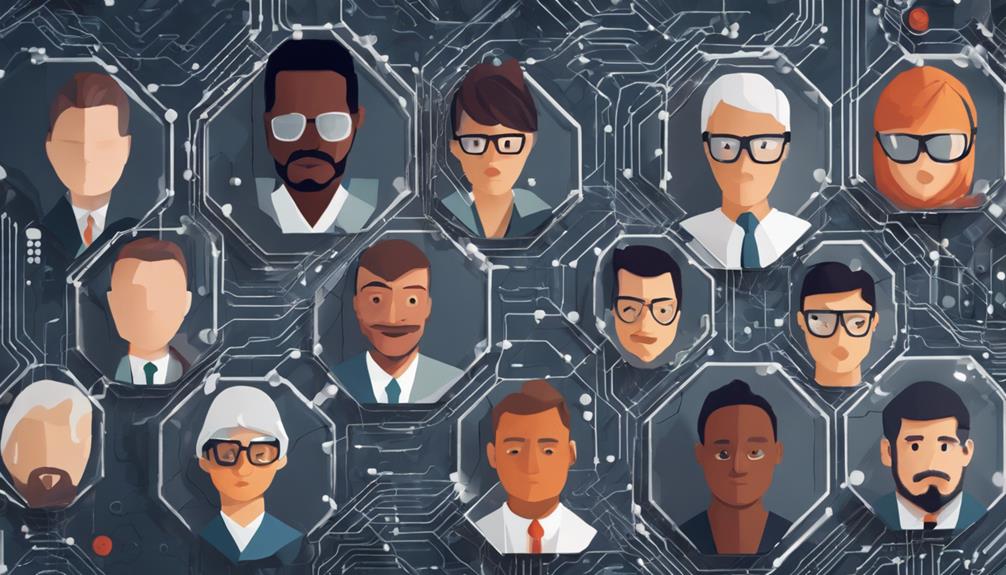
The human element remains indispensable in the domain of cyber defense, providing essential critical thinking and adaptability skills that complement AI's capabilities. Human expertise is vital in overcoming complex cybersecurity challenges that demand intuition and experience.
Collaboration between humans and AI is essential for enhancing overall cybersecurity defenses and response capabilities. Humans serve as the frontline defense in cybersecurity, utilizing their critical thinking skills to assess and respond to threats effectively. AI, on the other hand, acts as a supportive tool, augmenting human efforts rather than replacing them.
AI Vs Human Expertise
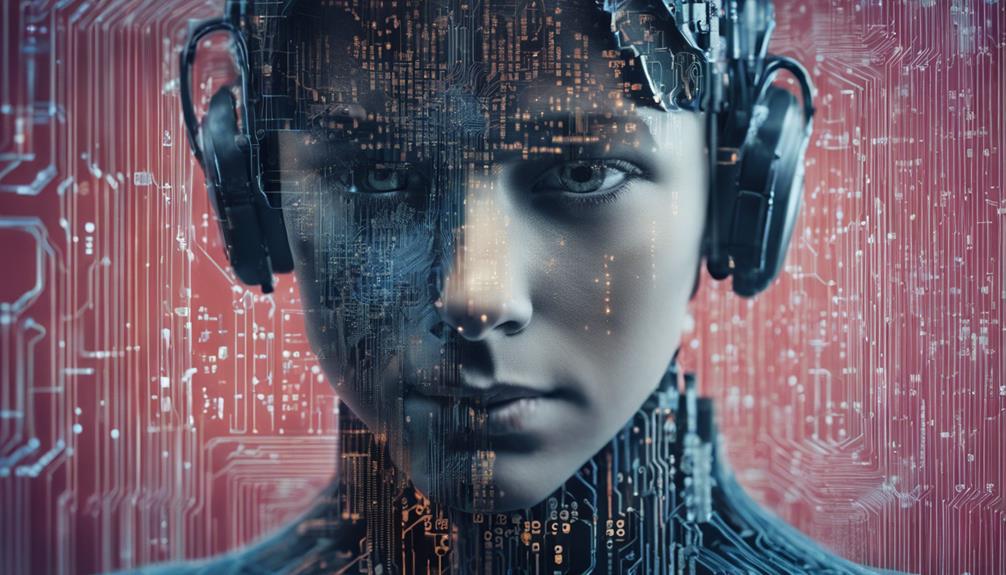
Human expertise in cybersecurity brings unique strengths that complement AI's capabilities when it comes to defending against cyber threats.
While AI technology excels in processing vast amounts of data and identifying patterns, human intervention is essential for critical thinking and adaptability in complex situations. Cybersecurity professionals play an important role in collaboration with AI, leveraging their experience and intuition for in-depth threat analysis.
The synergy between AI and human experts is necessary for establishing effective security measures that can adapt to evolving threats. AI serves as a supportive tool rather than a replacement for human cybersecurity professionals, enhancing their capabilities and efficiency.
Enhancing Cybersecurity With AI
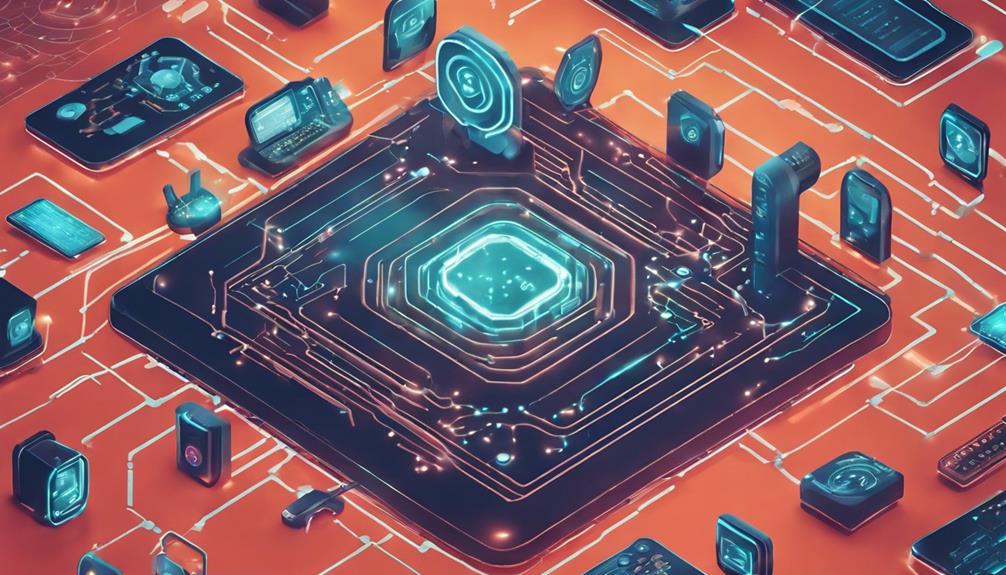
Enhancing cybersecurity through the integration of artificial intelligence technology is a pivotal strategy in safeguarding against cyber threats. AI, particularly through machine learning algorithms, plays a critical role in enhancing threat detection and response capabilities.
By analyzing extensive amounts of data, AI tools can predict and prevent cyber threats more efficiently than traditional methods. These advanced security solutions not only automate processes but also enable real-time monitoring of networks for potential risks, ensuring proactive protection of sensitive information.
Moreover, the collaboration between AI systems and human experts strengthens overall cybersecurity defenses, combining the speed and accuracy of AI with human intuition and decision-making abilities.
As organizations continue to prioritize data protection and network security, responsible implementation of AI in cybersecurity is essential not only for effective protection but also for ethical considerations in handling sensitive information.
Limitations of AI in Cybersecurity
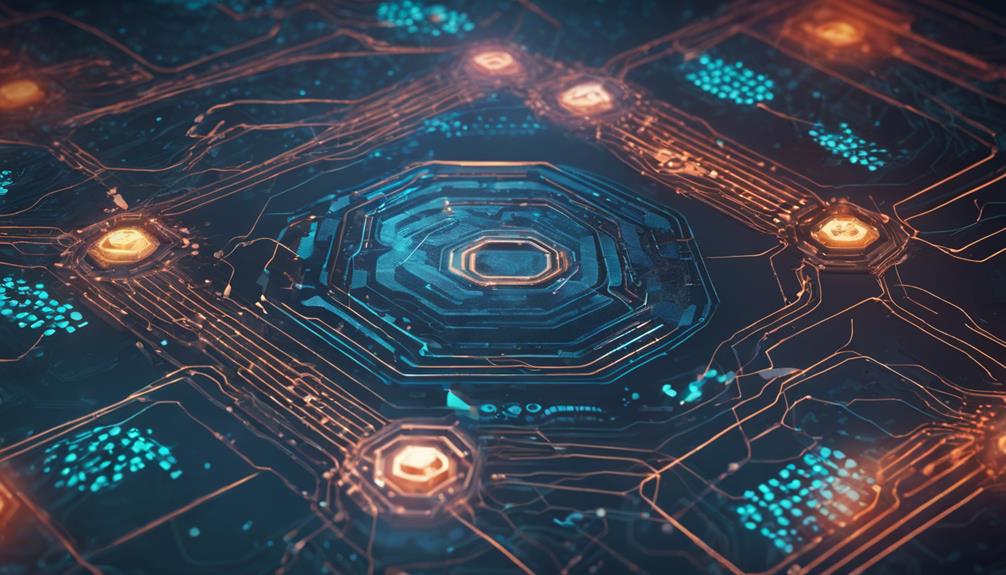
Despite its advancements, artificial intelligence in cybersecurity faces significant limitations that impede its efficacy in addressing complex security challenges. AI may struggle with understanding context, leading to difficulties in distinguishing between legitimate and malicious activities.
The lack of essential reasoning and empathy in AI systems poses risks in decision-making processes within cybersecurity, potentially impacting the outcomes of security measures. Additionally, AI's reliance on historical data may hinder its ability to effectively detect new and evolving cyber threats, which constantly evolve in sophistication.
Moreover, human oversight is vital in cybersecurity operations involving AI, as these systems can be manipulated or exploited by cybercriminals to evade detection. While AI offers valuable tools for enhancing cybersecurity measures, it is important to recognize and address these limitations to ensure a thorough and effective security strategy.
AI Applications in Threat Detection
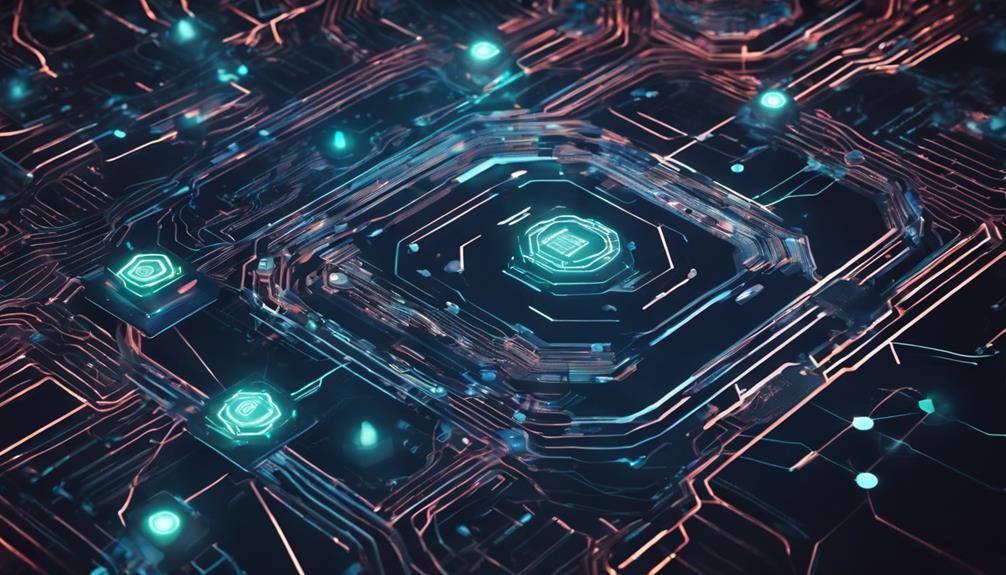
In the domain of cybersecurity, AI applications play a pivotal role in threat detection and identification.
By utilizing machine learning algorithms, AI systems can analyze vast datasets to uncover potential attack patterns swiftly.
Moreover, automated security monitoring powered by AI aids in pinpointing vulnerabilities within systems, enabling proactive measures to bolster defenses.
AI in Threat Identification
AI plays a pivotal role in cybersecurity through its advanced capabilities in threat identification, particularly in analyzing extensive data sets for anomalies and patterns. Machine learning algorithms embedded in AI systems can efficiently detect evolving cyber threats by sifting through historical data, enabling the identification of potential risks before they escalate.
Neural networks, a key component of AI, exhibit remarkable accuracy in recognizing new and sophisticated cyber threats that may evade traditional cybersecurity tools. By leveraging AI-powered cybersecurity tools, organizations can swiftly identify deviations from normal patterns in network behavior, enhancing their ability to preempt and mitigate potential security breaches effectively.
Automated vulnerability scanning, driven by artificial intelligence, streamlines the process of pinpointing security weaknesses within systems, enabling prompt remediation actions. Embracing AI applications in threat detection empowers organizations to bolster their cybersecurity posture and response capabilities, safeguarding sensitive data and critical infrastructures against evolving cyber threats.
Automated Security Monitoring
With the integration of AI applications in threat detection, automated security monitoring revolutionizes the cybersecurity landscape by greatly enhancing organizations' ability to swiftly identify and respond to potential cyber threats. AI-powered tools analyze vast amounts of data using machine learning algorithms to detect anomalies and cyber threats in real-time, notably improving accuracy. This automated approach enables organizations to stay ahead of evolving threats, complementing human efforts for a more robust cybersecurity defense. One of the key advantages of automated security monitoring is the acceleration of threat detection and response times, enabling quick action to mitigate potential risks. Below is a table highlighting the benefits of automated security monitoring in cybersecurity:
| Benefits | Description |
|---|---|
| Accelerated threat detection | AI-driven tools quickly identify potential cyber threats, reducing response times. |
| Enhanced accuracy | Machine learning algorithms improve the accuracy of threat detection in real-time. |
| 24/7 monitoring | Automated systems provide continuous surveillance, ensuring no threat goes unnoticed. |
| Proactive defense | Organizations can proactively defend against cyber threats, staying ahead of attackers. |
| Complementary to human efforts | Automated security monitoring complements human expertise, creating a more robust defense system. |
Challenges of AI Integration

How do the challenges of integrating AI into cybersecurity impact the effectiveness of digital defense mechanisms?
AI integration faces hurdles that necessitate human oversight in handling complex scenarios. Ensuring the ethicality, transparency, and accountability of AI systems presents integration obstacles. Addressing adversarial AI threats is vital to mitigate system vulnerabilities during integration.
Overcoming the limitations of AI, including its lack of intuition and adaptability, is fundamental for successful integration into cybersecurity frameworks. Striking a balance between relying on AI and leveraging human expertise is essential for implementing robust cybersecurity measures.
To navigate these challenges effectively, organizations must prioritize establishing clear protocols for human oversight, promoting ethical AI practices, and enhancing the adaptability of AI systems. Transparency in AI decision-making processes and accountability for system actions are paramount to bolster cybersecurity defenses.
The Ethical Dimension of AI
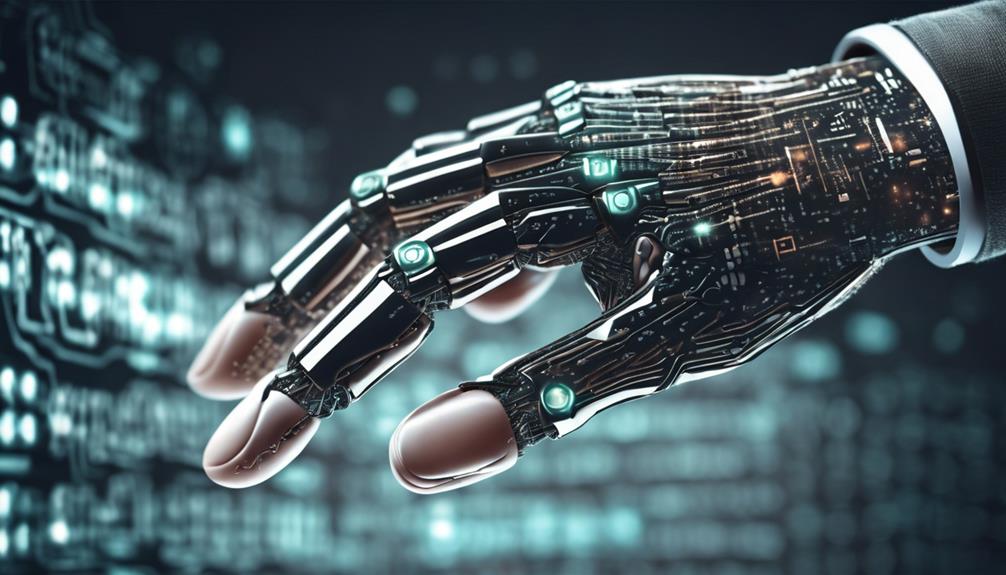
The ethical dimension of integrating artificial intelligence (AI) into cybersecurity underscores the necessity for establishing robust ethical guidelines. When implementing AI in security measures, considerations such as privacy protection, transparency, and accountability play an essential role in ensuring responsible deployment. Ethical dilemmas may arise from unfair algorithms that can lead to privacy violations, emphasizing the need for a strong ethical framework to guide AI applications in cybersecurity.
To navigate the ethical challenges brought by AI in cybersecurity, organizations must prioritize ethical considerations to build trust with users and stakeholders. Below is a table highlighting key aspects of the ethical dimension of AI in cybersecurity:
| Ethical Dimension | Importance | Examples |
|---|---|---|
| Privacy Protection | Critical for user trust | Encryption, data anonymization |
| Transparency | Ensuring accountability | Clear communication of AI roles |
| Accountability | Responsibility for outcomes | Establishing clear lines of liability |
Future of Cybersecurity: Hybrid Approach

Given the increasing integration of AI in cybersecurity, the future landscape is shaping towards a hybrid approach that combines artificial intelligence capabilities with human expertise. This amalgamation leverages the strengths of both AI and human professionals to fortify cyber defenses and respond to threats effectively.
Here are four key aspects of this hybrid cybersecurity model:
- AI Technology for Faster Response: AI and machine learning algorithms enable quick threat detection and response, enhancing security teams' efficiency.
- Human Intuition for Complex Decision-Making: Traditional security practices combined with human expertise are essential for making nuanced decisions based on user behavior and situational context.
- Optimized Resource Allocation: AI automates routine tasks and analyzes massive data sets, allowing security teams to focus on strategic initiatives that require human creativity.
- Synergy for Enhanced Security: The collaboration between AI and human professionals results in a robust defense system that maximizes accuracy, response time, and adaptability against evolving cyber threats.
Frequently Asked Questions
Is AI Going to Replace Cyber Security?
AI will not replace cybersecurity professionals but enhance capabilities. AI tools automate tasks, analyze data, and detect anomalies, aiding in threat response. Collaboration between AI and professionals strengthens defenses. Human intuition and strategic decisions remain vital.
What Is the Future of AI in Cybersecurity?
What is the future of AI in cybersecurity? AI's role will continuously evolve, enriching defenses with predictive analytics, automated threat detection, and adaptive responses. Integrating AI into cybersecurity strategies will enhance protection against sophisticated cyber threats.
Can AI Be Used for Cyber Security?
AI plays a significant role in cybersecurity by automating threat detection, analyzing data for anomalies, and predicting future threats. Its machine learning algorithms identify breaches and enhance defense mechanisms, aiding organizations in strengthening their security posture.
Which Is Better for Future AI or Cyber Security?
In the digital domain, AI and cybersecurity are akin to a symphony orchestra – each playing a crucial role in harmony. While AI enhances efficiency and analysis, cybersecurity professionals provide strategic direction, ensuring a strong defense against cyber threats.
Conclusion
To sum up, while AI is making significant advancements in cybersecurity, it is unlikely to completely replace human expertise in the near future.
A hybrid approach, combining AI capabilities with human intuition and decision-making, is seen as the most effective strategy for cyber defense.
According to a recent study by Gartner, by 2023, 65% of organizations are expected to incorporate AI into their cybersecurity strategies, highlighting the growing importance of this technology in protecting against cyber threats.





